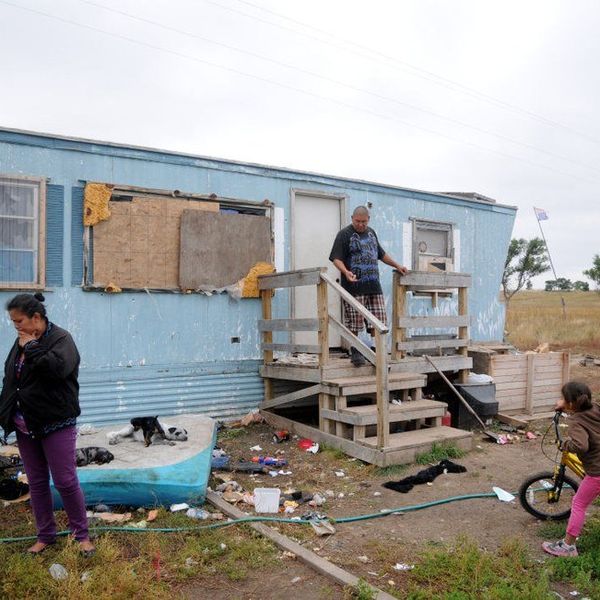Recently, NFL quarterback Colin Kaepernick has decided he will not stand during the United States’ national anthem in protest of the recent police killings of people of color. Naturally, this has many US citizens outraged. Scrolling through my Facebook feed, I’ve seen numerous posts claiming that Kaepernick isn’t a real American, and that he should be more patriotic out of respect to those who served to protect his freedom. Besides being pedantic, there’s an underlying theme of these posts, and it usually appears in a tagline at the end: patriotism isn’t about race.
How about we dive into that statement? When we look back on the formation of this nation, the United States of America, can we identify why people of color may view patriotism differently from people of European ancestry? How big of a role does race play in patriotism for the United States of America, if any at all? Let’s follow a timeline of this country’s history starting from its initial colonization and observe how history has impacted attitudes towards patriotism from the viewpoints of both Native and African Americans.
When the first colony in Virginia was established by England in 1619, the United States that we know today took form. Of course, there was already a group of people living on these lands, and they certainly weren’t “uncivilized” like the history books portray them. Many of the tribes, especially the Cherokee peoples in the southeastern corner of North America, had established great nations that had been thriving off of the lands for generations. The members of each tribe were loyal to each other, and fought with neighboring tribes quite frequently. However, these battles never resulted in the mass casualties caused by the total war mentality of the British. When they arrived, they saw that they could quickly take advantage of the native peoples by way of guns, germs, and steel. They fought for God, King, and Country. Patriotism for England drove colonists to completely eradicate small tribes, and force much of the remaining native population into slavery. Native American girls as young as fourteen years old were raped and kidnapped from their families, forced to become wives to the male colonists. To them, this was God’s way. God told them to seize this land for Mother England and to obliterate these “savages.”
As more and more English men, women, and children came to North America, wiping out native populations became more efficient and routine. Colonists rediscovered what Christopher Columbus and his men did in 1492: smallpox and scarlet fever can be transferred via objects and the native people have little to no immunity to these diseases. This lead to huge drops in the native population, allowing the English to push further into the American land and establish a nation. By 1776, America’s white population had soared from the original one hundred-or-so to roughly 2.5 million. Meanwhile, the native population had dropped from estimates of about 20 million before white settlement to less than 2 million by 1776. That number eventually dipped below 1 million in the 1800s, until increased reservation efforts brought the population back up to 2.9 million today.
The native people weren’t the only ones robbed of their land during the formation of the United States, however. The Atlantic slave trade began in 1526 when the Portuguese transported numerous people from West Africa to work in Caribbean gold mines, sugar plantations, and various other forms of manual labor against their will. The first English colonists of Jamestown brought African slaves with them in 1619, along with white indentured servants. While in servitude, both Africans and indentured English servants were treated poorly. However, indentured servants were granted freedom after a set number of years. While this may have been the case for some African servants, it often wasn’t, and from the differences in skin tone was born a new caste of slaves that would be property for life unless someone else bought their freedom. Naturally, this created quite a different view of the burgeoning nation from the perspective of African Americans. They drove the economic production with their bare hands while being treated worse than dogs on some plantations. America became a place of terror for the men, women, and children who took their first steps off of the jam-packed vessel that stole them from their land. They did not choose to be a part of this nation, yet they were forced to build it into an empire.
When the Founding Fathers drafted the Declaration of Independence and the United States Constitution, they alluded to “all men being equal,” and the “freedom to pursue life, liberty, and happiness.” Now, with the history of our nation in mind, were the native people or the people of Africa treated equally? Were they allowed to pursue life, liberty, and happiness? What say did they have in the Declaration or the Constitution? Is it hard to see why some Americans of native or African don’t feel like this land has had their best interests in mind? It took over two hundred years before Africans were freed from the clutches of slavery. It took another 90 years before they could effectively vote across the nation. The people native to the land we call the United States never wanted a new country to be founded here to begin with, and after it had been established, some tribes elected to not be a part of the nation and roped themselves within reservations. And why would they want to be a part of a nation that robbed them of their land and forced them to live in camps? Why would black people want to live in a land that stole their ancestors from their homes and forced them to build a nation, only to later “free” them, humiliate them, incarcerate them, and treat them like second-class citizens to this very day?
Patriotism manifests itself differently depending on whom you ask in the United States. The family of a fallen soldier will likely tell you how much their son or daughter loved and devoted themselves to our nation. An immigrant might tell you how much they value their individual freedoms in the States compared to their home country. Some might tell you about how their American experience has been tainted by racism and bigotry. A Muslim immigrant from Saudi Arabia might share a story of how drastically her thoughts on patriotism turned immediately following 9/11 and the discrimination she endured. A black man from the suburbs might tell a story of alienation and being treated as a foreigner in a predominately white area.
Some of these people might be outright unpatriotic, and denounce the nation that their ancestors were forced to be a part of. And what should you as a good, proud and peaceful US citizen do about it? If you truly are patriotic and love this country, then you would offer a listening ear. Try to understand where that person is coming from, and try to keep their perspective in mind. Different peoples of this nation have different histories, but we all share this nation today. Allow yourself to see this country through the eyes of someone who doesn’t share your skin color. Try to comprehend Colin Kaepernick’s disappointment with our current justice system and be empathetic towards his concerns. That’s what good Americans do; they build each other up. White people: don’t be frustrated with Colin Kaepernick for his lack of patriotism. Be frustrated with how this country has treated and continues to treat Black people. Engage in a dialogue about race and what it means to be Black, Latino, Asian, White, Middle-Eastern, or any other diaspora in this country before you try to narrowly define patriotism from a single-race perspective.




















